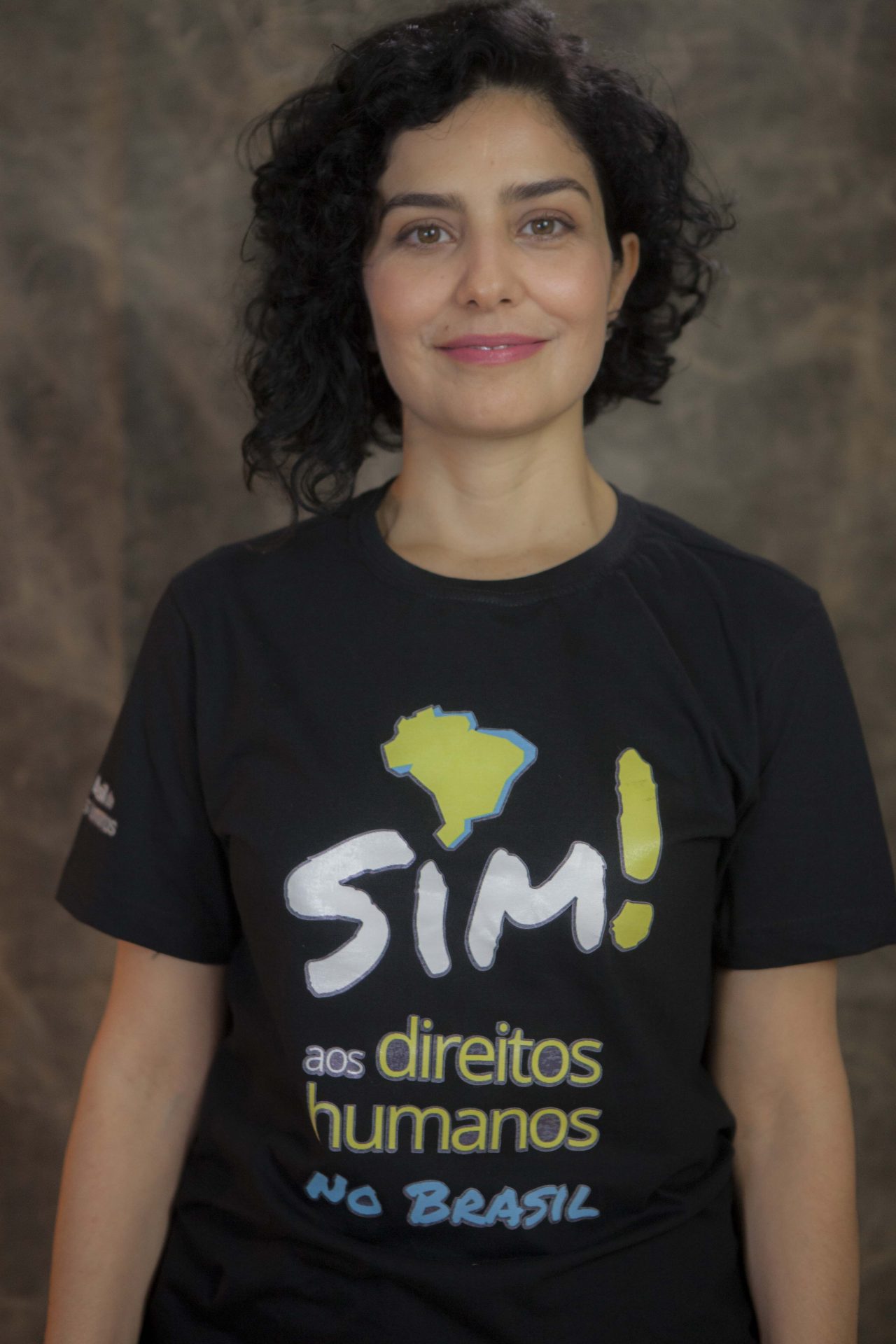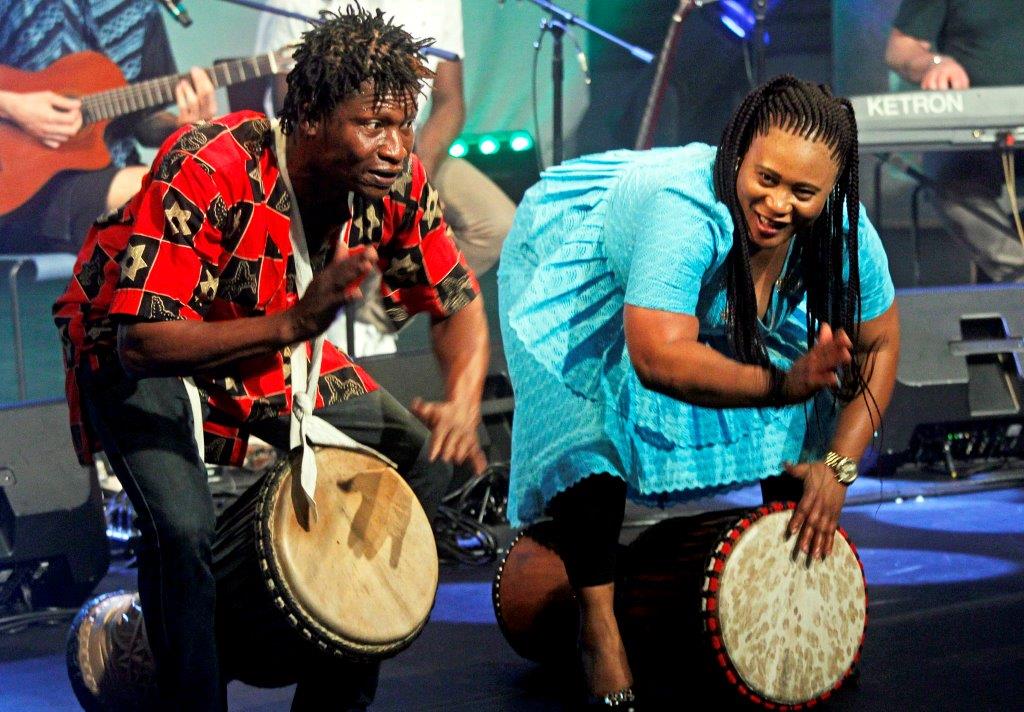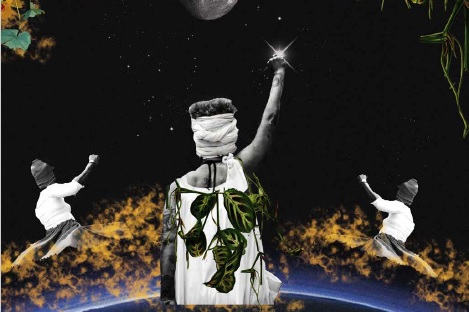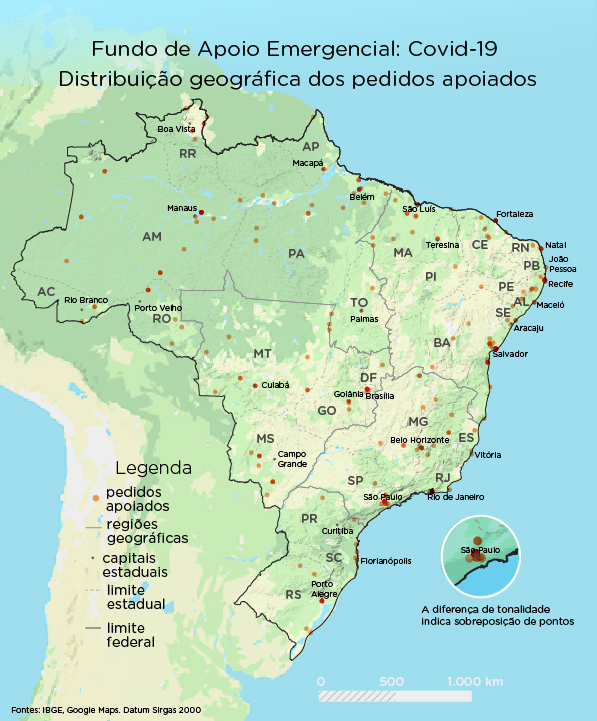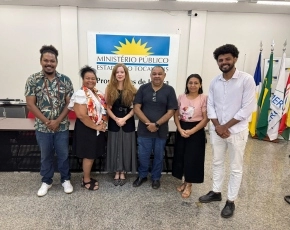
Meeting between the Human Rights Center of Araguaína, Julho das Pretas, Color of Araguaína Black Association and Unified Black Movement of Tocantins, for the creation of the Municipal Council for Promotion of Racial Equality. Picture: CDHA
Araguaína, the second largest city in Tocantins, is about to increase popular participation in the decisions about the promotion of racial equality in the city. The anti-racist social movements in the city have been conducting mobilizations, meetings and gatherings to structure the Municipal Council for Promotion of Racial Equality (COMPIR).
The initiative has as a prime mover the Human Rights Center of Araguaína (CDHA). With support from the Brazil Fund, through the Tackling Racism from the Roots call for proposal, the organization has been leading strategic coordinations with the public power and other institutions, strengthening the project and guaranteeing that the Council becomes an instrument for the participation of civil society and public power in the monitoring of public policies.
“The Fund’s resources allowed us to have a team, planning and coordination capabilities to undertake this project. Without that support, it would be very difficult to maintain a mobilization such as this one in a continuous and strategic manner”, explains professor Dhiogo Lobato, director of the CDHA. “The Brazil Fund brought legitimacy to the agenda, expanding the organization’s power of advocacy”.
With over 180 thousand inhabitants, the city located to the North of the state faces historic challenges relating to the violation of rights and racial discrimination. Around 73% of the araguainan population self-identifies as Black, according to the data from the 2022 Census by IBGE (Brazilian Institute of Geography and Statistics). However, this majority isn’t reflected in the spaces of power or in the full guarantee of rights.
The fight for the creation of COMPIR is the result of a work initiated in 2021, by organizations such as the CDHA, the Unified Black Movement (MNU), the Color of Araguaína Black Association (ANCA), the Julho das Pretas Collective and the Federal University of Northern Tocantins (UFNT), as well as the Public Defender’s Office and Public Prosecutor’s Office of Tocantins.
Throughout that period training cycles were conducted, as well as anti-racist campaigns and, in September 2024, the signature of a Conduct Adjustment Term (TAC), that determines the formalization of the Council and the elaboration of a Municipal Plan for Promotion of Racial Equality and the legal creation of COMPIR.
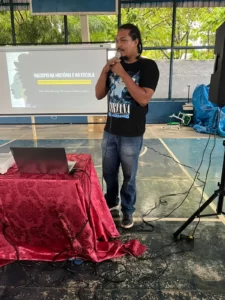
Professor Dhiogo Lobato, director of the CDHA, during Workshop about Equality and promotion of racial justice in schools. Picture: CDHA
“The Council is a historic demand by the Black Movement of Araguaína. It’s a space where public power and civil society can build solutions to fight racial inequalities together. However, more than that, it represents the acknowledgement of the existence of racism and the urgency to tackle it with public policies”, reinforces Dhiogo.
So that COMPIR comes into fruition, this council’s Provisory Commission of Structuration was also created. Formed by representatives of many different sectors, the commission has been conducting meetings with the Mayor’s Office and other organs of executive power.
In the region, CDHA also coordinated actions with the City Council and the Executive Branch to press for the adoption of anti-racist measures, such as public service affirmative action quotas and the institutionalization of COMPIR.
“Today we have the confidence to talk to other institutions and the public power to expand our partnerships. Today we have a more active presence in the local political scene”, adds the professor.
Education and mobilization as a strategy
CDHA was founded in the 2000s as a response to a scenario of systematic violations of human rights in the region, especially against rural workers and the Black population.
“At the time, we would see many egregious violations of rights, especially slave labor, still so latent through the region. The Human Rights Center of Araguaína was born as a response to this context, bolstered by religious, social, and academic leaderships, with the goal of promoting human rights and giving visibility to the silenced voices of Araguaína”, recollects Dhiogo.
Today, the organization forwards political training and popular mobilization as a way to transform consciences and institutional practices.
Workshops in public schools, roundtable dialogues about structural racism and communication actions geared towards the valuing of the Black identity are some of the strategies adopted in the Voices of Resistance: Tackling Racism from the Roots project, supported by the Brazil Fund.
“We have been betting on political and anti-racist training, the strengthening of local networks and advocacy alongside the public power. We seek to systematize experiences to generate data and evidence that backs the anti-racist fight”, sums the director. “Our work comes from the principle that these populations already have knowledge and political strength. Our role is to listen, support and potentialize their fights”.
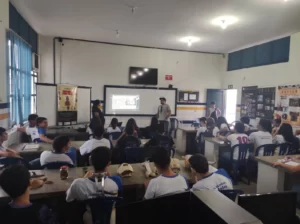
Genetics and Ancestrality Workshop, promoted by the CDHA, in Araguaína/TO. Picture: CDHA
In total, 19 training activities were conducted, with over 450 participants.
An accessible and safe reporting channel was also created, via WhatsApp, to receive reports of racism and violation of rights. The organization took in 24 reports and promoted 18 individual compliance meetings with legal, supportive and formative forwarding.
Cases such as that of a Black pregnant woman victim of obstetrical violence, or young people assaulted by security guards, revealed how racism manifests in the daily life of the inhabitants of Araguaína. “The CDHA has acted in the orientation, emotional support and search for justice, strengthening the bond between community and organization.”, says the director.
The Human Rights Center of Araguaína’s work has also expanded the presence of black leaderships in public spaces, as well as the debates about racism in schools and the strengthening of politically engaged youth collectives. “Today there are more mobilized Black youths, acting collectives, and an even stronger presence of organizations that demand from the public power”, observes the director.
However, the continuity of actions is a concern of the project’s team. “We are investing in the construction of long-lasting partnerships, in the training of new leaderships, and in the solidity of our actions though medium and long-term projects”, says Dhiogo. The plan is to turn CDHA into a permanent space of training, political advocacy, and tackling of inequalities.
Tackling Racism from the Roots
The Tackling Racism from the Roots call for proposal is in its 5th edition. The goal of this support is to strengthen groups, collectives and organizations led by Black people throughout the national territory.
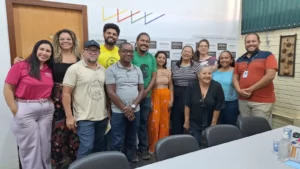
Participating organizations in the coordination for the Municipal Council for the Promotion of Racial Equality, in meeting with the city’s Social Services Office. Picture: CDHA
This year, the Foundation will grant BRL 1 million (roughly 250 thousand USD) to over 20 grassroots initiatives focused on the defense of the rights of the Black population. Each group can receive up BRL 50 thousand (roughly 10 thousand USD).
The resources, of flexible nature, may be used however the proponent group finds adequate so as to ensure the sustainability of their activities of promotion and defense of human rights within the agenda of fighting racism.
Beyond this specific call for proposal, the organizations, groups, and collectives of the anti-racist fights are supported by the Brazil Fund in the scope of other calls for proposals.






















